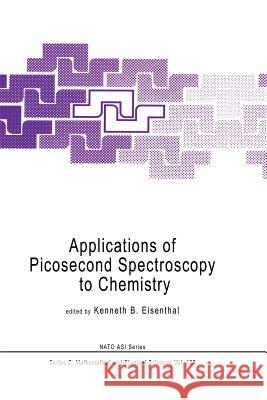Applications of Picosecond Spectroscopy to Chemistry » książka
Applications of Picosecond Spectroscopy to Chemistry
ISBN-13: 9789400964297 / Angielski / Miękka / 2012 / 363 str.
With the development of lasers that can generate light 11 14 pulses ranging from 10- - 10- sec duration, and capable of 13 peak powers in excess of 10 watts scientists have been able to investigate the interactions of light with matter in a time and power domain not previously possible. These ultrashort laser pulses provide a powerful tool for the study of chemical phenomena at the most fundamental level. Many of the elementary processes of importance in chemistry including energy dissipa tion, molecular motions, structural and chemical changes occur on a very short time scale and thus require special approaches. Th use of ultrashort laser pulses to perturb and to probe systems of interest affords a direct approach to the time reso lution of very rapid chemical phenomena. It was recognition of the impact of these relatively new approaches to chemical phenomena that motivated NATO to sponsor a meeting on the applications of picosecond spectroscopy in chemistry. The primary aim of the NATO workshop was to gain some perspective on the status of the field in terms of present research activities, technological developments and if possible the difficult task of sensing future directions. The way we decided to approach these issues was to gather together the main contributors to the field, fortunately many of whom were able to attend, to present their work and to participate in what turned out to be lively discussions of the field."











